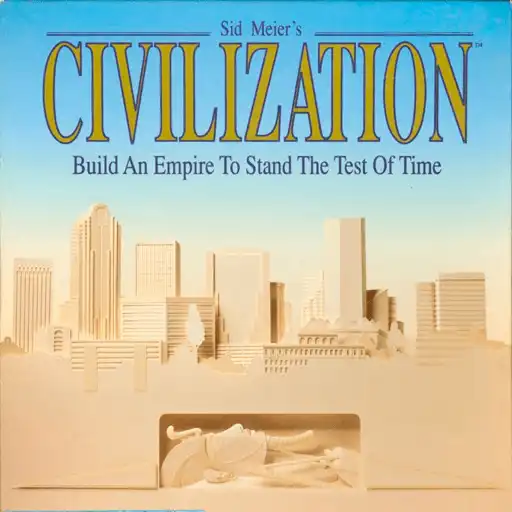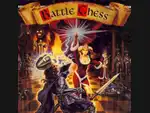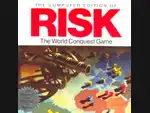
[Updated] Civilization Online: A New Era of Strategy Gaming
Civilization Online offers players a thrilling way to experience the rich history of civilization-building in a multiplayer format. Many players are specifically interested in Civilization 1 online, and this article will explore the options for playing this classic game online. This MMO game allows users to create their own avatars and guide their civilizations from the Stone Age to the Space Age, making choices that affect their development and interactions with other players.
Players can research, construct, engage in warfare, or even spy on rival civilizations in a dynamic world that requires strategic thinking and planning. Whether you're looking to play Civilization 1 online or a newer version, the core gameplay remains engaging and strategic.
The game's design encourages social interaction, making it easy for players to collaborate or compete with each other. The blend of historical elements with modern gameplay creates an engaging environment where players can appreciate the complexities of empire-building. Discover how to play Civilization online and build your empire.
Whether exploring conflicts or fostering alliances, every decision counts in shaping the future of their civilizations. Learn the best strategies for playing Civilization 1 online and dominating the game.
As players navigate through different ages, they find unique strategies to excel and ensure their civilization thrives. With challenges at every turn, players discover the true depth of gameplay and the importance of planning in a competitive landscape.
Key Takeaways
- Civilization Online lets players build and control their own civilizations through various historical periods.
- Success requires strategic decision-making and adapting to the actions of other players.
- Engaging with other players enhances the gameplay experience and adds exciting layers to strategy.
Historical Evolution of Civilization Games
The Civilization series started as a groundbreaking strategy game, shaping how players interact with history. Each version built on the previous one, adding depth and complexity while introducing online features that enhanced gameplay. Many players are now looking for ways to play Civilization 1 online, and this section will explore those options.
From Civilization 1 to the Latest Iterations
Sid Meier’s Civilization first launched in 1991, introducing players to building and managing a civilization through different historical periods. This game set a high standard for strategy games with its turn-based gameplay and resource management. Discover the origins of the Civilization series with Civilization 1.
Over the years, the series evolved through multiple versions, from Civilization II, which added improved graphics and more depth, to Civilization V, which introduced hexagonal tiles and an innovative one-unit-per-tile mechanic.
Civilization VI, the latest main installment, expanded on these ideas with colorful graphics and stronger focus on city management and diplomacy. It also incorporated elements of online multiplayer, allowing players to compete globally. Explore the evolution of the Civilization series and its impact on strategy gaming.
Impact of Sid Meier's Design Philosophy
Sid Meier emphasized gameplay that encourages exploration and strategy. His approach made Civilization more than just a game; it became a tool for learning about history and cultures.
He focused on player choice, allowing them to shape their civilization’s path through various strategies. This freedom led to replayability, as players could try diverse approaches and styles. Experience the strategic depth of Sid Meier's Civilization games.
Meier's philosophy also includes challenges, where each decision impacts the game’s outcome. This created a dynamic experience that evolves with each playthrough. The online features brought in community engagement, making players learn from each other and share strategies in multiplayer settings. Discover the challenges and rewards of playing Civilization online.
The impact of his vision has left a lasting legacy in the history of gaming.
Playing Civilization Online
Civilization Online offers players a unique experience in building and managing an empire. The game incorporates various features and multiplayer aspects that enhance gameplay and community interactions. Whether you're interested in Civilization 1 online or the latest version, the core gameplay loop remains compelling.
Features and Gameplay
Civilization Online retains the core elements of Sid Meier's Civilization series. Players can choose different leaders, manage resources, and develop cities. The game spans various epochs, allowing players to advance their civilization from ancient times to the modern age. Explore the key features and gameplay elements of Civilization Online.
Key features include:
- Resource Management: Players gather and allocate resources to grow their empires.
- Building Structures: They can construct buildings that improve city functions, such as libraries and barracks.
- Upgrades and Technologies: Advancing through different eras unlocks new technologies and upgrades.
Additionally, players have the ability to build the Seven Wonders of the World, offering strategic advantages and boosting prestige. The turn-based system demands thoughtful planning and decision-making, keeping the gameplay engaging. Discover the strategic advantages of building the Seven Wonders of the World.
Multiplayer Dynamics and Communities
In Civilization Online, multiplayer elements play a crucial role in the gaming experience. Players can team up or compete against each other, fostering a robust community. Join a robust community and experience the multiplayer dynamics of Civilization Online.
These dynamics include:
- Cooperative Gameplay: Players can form alliances to tackle shared goals and challenges.
- Competitive Events: Regular tournaments and events test players' strategies and skills.
- Community Interaction: Many players share strategies and tips on forums, enhancing their gaming experience.
Joining online communities allows players to exchange ideas and experiences. This engagement enhances the game’s depth, making it not just about personal achievement but also about collaboration and rivalry. As players navigate these dynamics, they contribute to a living, breathing game environment. Connect with other players and share strategies in the Civilization Online community.
Strategies for Success
In "Civilization Online," players must use different strategies to thrive throughout the game. Understanding effective tactics for each stage will greatly enhance a player’s chances of success. Below are key approaches for both early and mid to late game. Whether you're playing Civilization 1 online or a newer version, strategic planning is essential for success.
Early Game Tactics
During the early game, focus on rapid expansion and resource management. Founding new cities quickly is crucial for increasing production capabilities. Master early game tactics to gain a strategic advantage in Civilization Online.
Players should prioritize settling near vital resources like food and production. Prioritize settling near vital resources for rapid expansion.
Key Actions:
- Scout Early: Identify resource locations and rival civilizations.
- Build Cities: Aim for at least two or three cities to ramp up output.
- Manage Amenities: Keep citizens happy to prevent unrest.
Early exploration and city management lay the groundwork for later successes. This phase sets up strategic advantages for future conflicts and trade opportunities. Lay the groundwork for future success with early exploration and city management.
Mid to Late Game Strategies
As the game progresses, strategies become more complex. Develop more complex strategies as the game progresses.
Players should optimize their civilization’s strengths. This could involve leveraging unique abilities or focusing on specific victory conditions like technology or culture. Optimize your civilization's strengths to achieve victory.
Key Strategies:
- Specialize Cities: Designate cities for specific tasks, such as military production or scientific research.
- Diplomacy: Form alliances or trade agreements to benefit from resources or military support.
- Military Readiness: Maintain an adequate defense while preparing for offensive actions against rivals.
Resource management and strategic planning will keep players competitive in the mid to late game. Maintain competitiveness with resource management and strategic planning.
Adapting to opponents' strategies is key to overcoming challenges.







